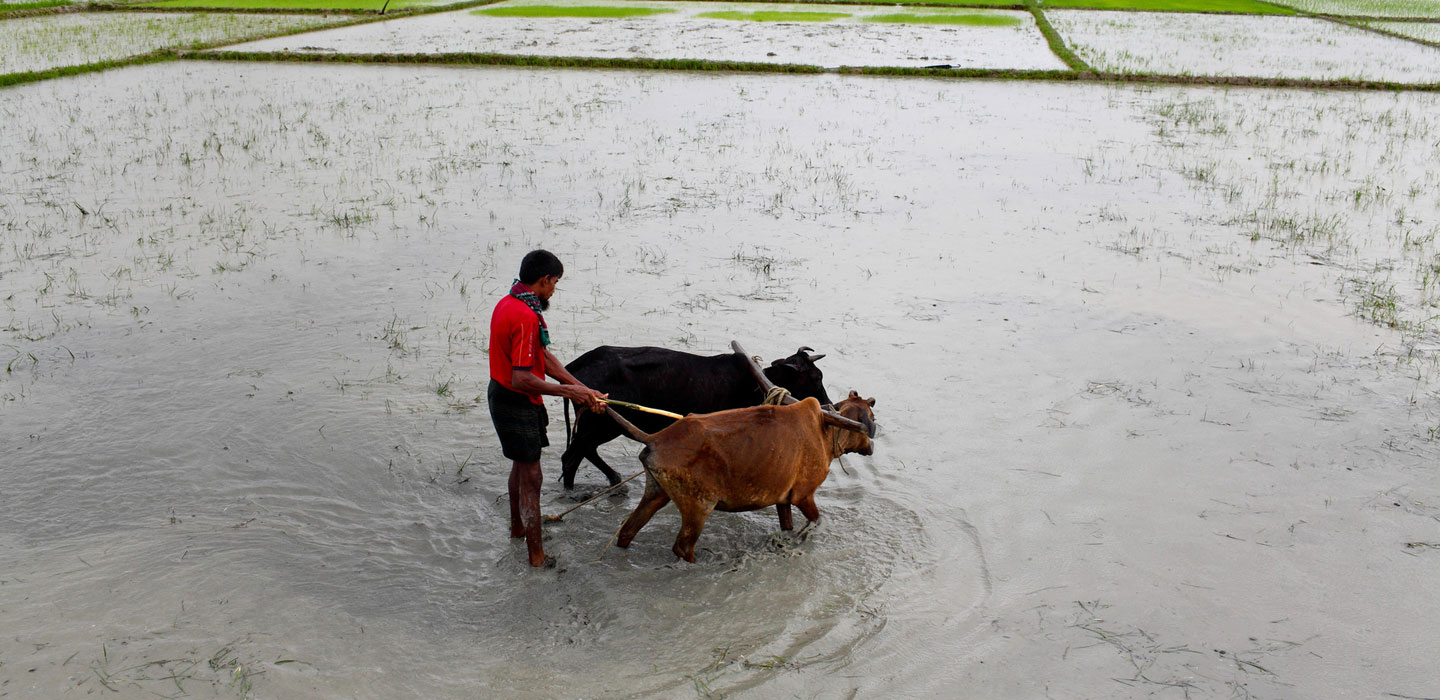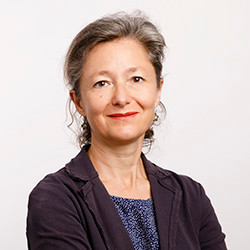New IFAD initiative will help reduce global warming by lowering methane emissions from small-scale farming
IFAD Asset Request Portlet
Asset Publisher
New IFAD initiative will help reduce global warming by lowering methane emissions from small-scale farming
08 May 2023
Rome/ Washington, D.C., 8 May 2023 – With sharp reductions in methane emissions key to keeping global warming below 1.5 degrees Celsius, the International Fund for Agricultural Development (IFAD) is launching a new initiative to help developing countries lower methane emissions from agricultural and small-scale farming. Announced today at the AIM for Climate Summit, the new program will receive US$3 million in support from the Global Methane Hub and US$ 1 million in support from the US State Department.
Approximately 42 percent of methane emissions come from the agriculture sector, with emissions primarily originating from livestock through enteric fermentation and manure management, flooded rice cultivation and the burning of crop residues. While small-scale farmers contribute far less emissions than large-scale and industrial farming, they can nonetheless make a contribution to mitigation efforts.
“The short atmospheric lifetime of methane means that acting now can rapidly reduce the rate of global warming,” said Juan Carlos Mendoza, Director of the Environment, Climate, Gender and Social Inclusion Division at IFAD. “Reducing methane emissions is a priority and IFAD is investing with partners to make it happen in a way that generates global benefits but also leads to better livelihoods for rural communities.”
“This funding will provide smallholder farmers with the right policy and financial support to reduce their methane emissions while also increasing their food production and incomes. We are thrilled to be working with IFAD to make this program a reality and help achieve the goals of the Global Methane Pledge,” said Rick Duke, the U.S. Deputy Special Envoy for Climate.
“We have observed that when it comes to agricultural methane mitigation, international climate and development finance is insufficient in scale and poorly aligned to those regions where emissions occur,” said Hayden Montgomery, Agriculture Program Director at the Global Methane Hub. “We are confident that IFAD’s new program will demonstrate how to successfully mainstream methane mitigation into agricultural development projects and unlock climate finance, and we fully expect other development partners will follow suit.”
While over 150 countries have signed the Global Methane Pledge, established in 2020, and agreed to take voluntary action to collectively reduce global methane emissions by at least 30 percent no later than 2030, several countries require support to develop the right strategies and processes to achieve their goals in methane reduction.
The IFAD initiative will support the preparation of a guidebook to help countries integrate methane emission reductions in their Nationally Determined Contribution (NDC), mainstream methane reduction in their national planning, budgeting, and public investments procedures, and advance a pipeline of bankable interventions that pioneer methane reduction in the agricultural sector and food systems.
IFAD will provide technical assistance to 15 countries to support integrating methane reductions in their updated NDC for submissions to the United Nations Framework Convention on Climate Change in 2025. The Fund will also assist these countries to design projects and blended finance solutions, to reduce methane emissions in agriculture and food systems.
The initiative will help to highlight the multiple advantages of a variety of solutions to reduce methane emissions. For example, approaches that introduce better feed, also promote animal health and husbandry. Specific techniques to use less water to grow rice, or using improved rice varieties that reduce the time between planting and harvesting, can also lead to increased rice production.
“Reducing methane emissions doesn’t mean producing less, on the contrary many agricultural practices are win-win solutions and can lead to emissions reductions and increased production and incomes for farmers. This is essential as many farmers live in poverty or are on the brink and many countries need to increase domestic production for local consumption,” said Mendoza.
Last November, IFAD and the U.S. State Department announced a new partnership to support small-scale farmers in developing countries to better adapt to climate change and further reduce highly polluting methane emissions and prioritize methane mitigation in upcoming IFAD projects valued at an estimated US$ 500 million.
Press Release No.: IFAD//2023
IFAD is an international financial institution and a United Nations specialized agency. Based in Rome – the United Nations food and agriculture hub – IFAD invests in rural people, empowering them to reduce poverty, increase food security, improve nutrition and strengthen resilience. Since 1978, we have provided more than US$24 billion in grants and low-interest loans to fund projects in developing countries.
A wide range of photographs and broadcast-quality video content of IFAD’s work in rural communities are available for download from our Image Bank.
